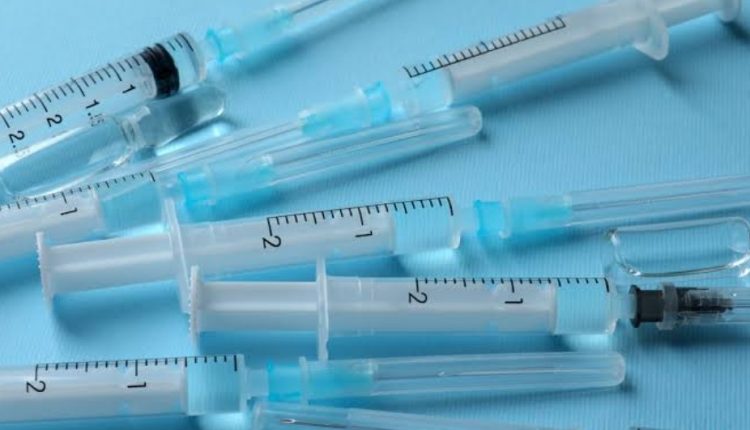Experts Encourage Safe Injection To Prevent Hepatitis C

A Professor of Public Health at the University of Ilorin, Kwara State, Tanimola Akande, said Nigeria will make progress in this fight against Hepatitis C if there are policies that would ensure safe injection practices in the country.
He described Hepatitis C as a dangerous blood borne infection that affects and causes enlargement of the liver, saying that there is the need for Nigeria to intensify screening and those found to be positive be given effective antiviral treatment.
Akande said Nigeria must boast of quality healthcare services and reduction in disease burden since the WHO said the country was on the part of ending Hepatitis C by 2030.
He said, “To promote massive screening of the populace, there must be accessible standard laboratories to all Nigerians. Of course, all the above measures will require funding higher than the current funding.”
Akande, who is a member of Expert Review Committee on Poliomyelitis Eradication Initiative and Routine Immunisation in Nigeria, said at the current pace of interventions, he doesn't see Nigeria meeting the 2030 target.
“However, it is difficult to predict when this will happen in Nigeria. It all depends on the seriousness of the various measures to achieve it and the behaviour of Nigerians as it relates to the risk factors,” he added.
The World Health Organisation says Hepatitis C is an inflammation of the liver caused by the Hepatitis C virus.
The virus can cause both acute and chronic hepatitis, ranging in severity from a mild illness to a serious, lifelong illness including liver cirrhosis and cancer.
A 2014 study sponsored by WHO, estimated that in 2010, up to 1.7 million people were infected with hepatitis B virus, up to 315 000 with hepatitis C virus and as many as 33, 800 with HIV through an unsafe injection.
A Consultant Orthopaedic Surgeon at the Abia State University Teaching Hospital, Aba, Abia State, Dr. Isaiah Abali, said that safe injection practices means measures taken in manner to ensure safe injections for patients, health care providers and others.
“Safe injection practices include the use of disinfectants to clean the area where injections will be given to prevent the transmission of blood borne pathogens to both patients and health care professionals,” he added.
He noted that the safe injection practices will help prevent Hepatitis C because the majority of the people contracted the disease from unsafe injection practices across the world.
Cloud Tag: What's trending
Click on a word/phrase to read more about it.
Alfa Modibo Belgore Alimi Abdulrazaq Yusuf AbdulRasheed Bayer Nigeria Limited Sulu Gambari Abdulrazaq Solihudeen Ayeyemi Sulaiman Pilgrims Board Eleyele Abdulmumini Jawondo Umar Danladi Shero Wahab Isa Elesie Of Esie Ahmad Olanrewaju Belgore Alliance For Democracy Plat Technologies Ilorin Muslim Community Ahmed Bayero Abegunde Goke Sheu Ndanusa Usman Tafida Of Kaiama Saka Keji Aliyu Kora Sabi CCT Najim Yaasin Isiaq Khadeejah Babaloja-General COEASU Pius Abioje Afolabi-Oshatimehin Adanla-Irese Abdulganiyu AbdulAzeez Aliyu Muyideen Umar Ahmed Gunu Joseph Offorjama AbdulGafar Tosho CELF Jawondo Y.A. Abdulkareem Afolasade Opeyemi Kemi Playing Host Ilorin South Sunset Workers Shero Belgore Bola Tinubu Amuda Bembe Ramadan Sunday Otokiti Apaokagi Adebara Tayo Awodiji IPSAS Risikat Lawal A.O. Belgore Ado Bayero TESCOM 2025 March 28 Sabi Bluenile Associates Yusuf Abdulraheem Jelili Yusuf Muhammadu Buhari Ayegbeni Jide Ashonibare Aremu Bose Deborah NaAllah Sobi FM Kishira Matthew Babaoye Mope Dasuki Belgore Kunbi Titiloye Mufutau Gbadamosi Esuwoye Mustapha AbdulGaniyu Societe Generale Bank Of Nigeria Sarah Alade Bayo Mohammed Onimode


